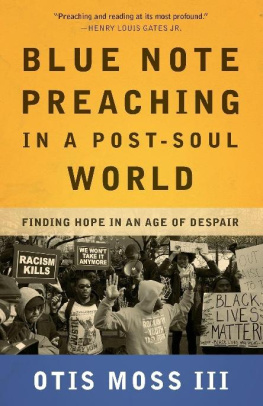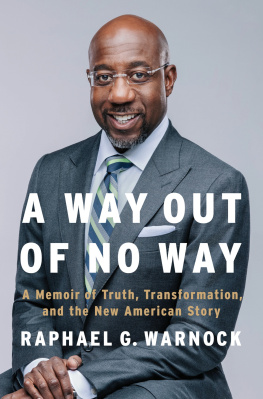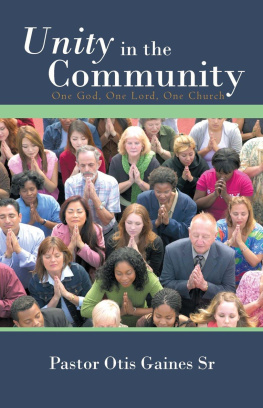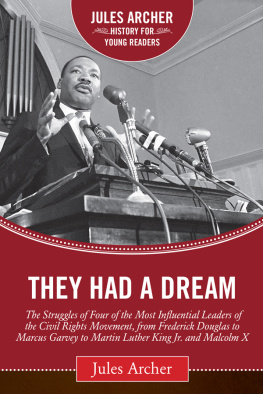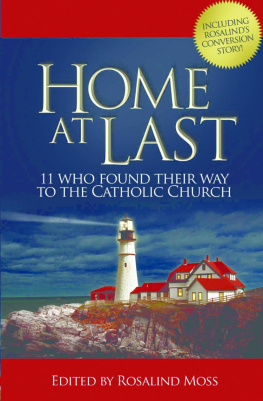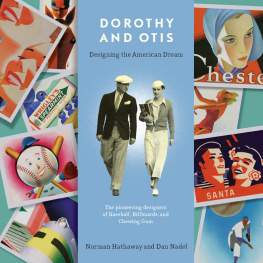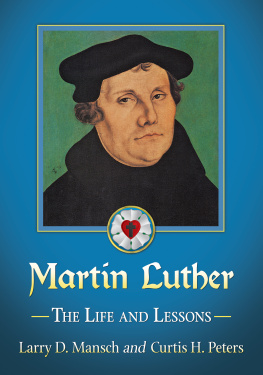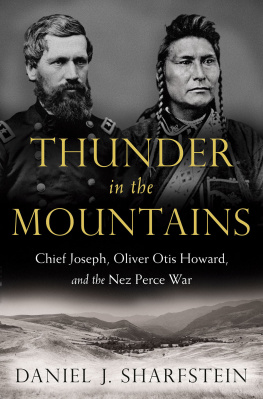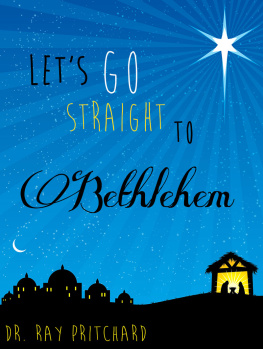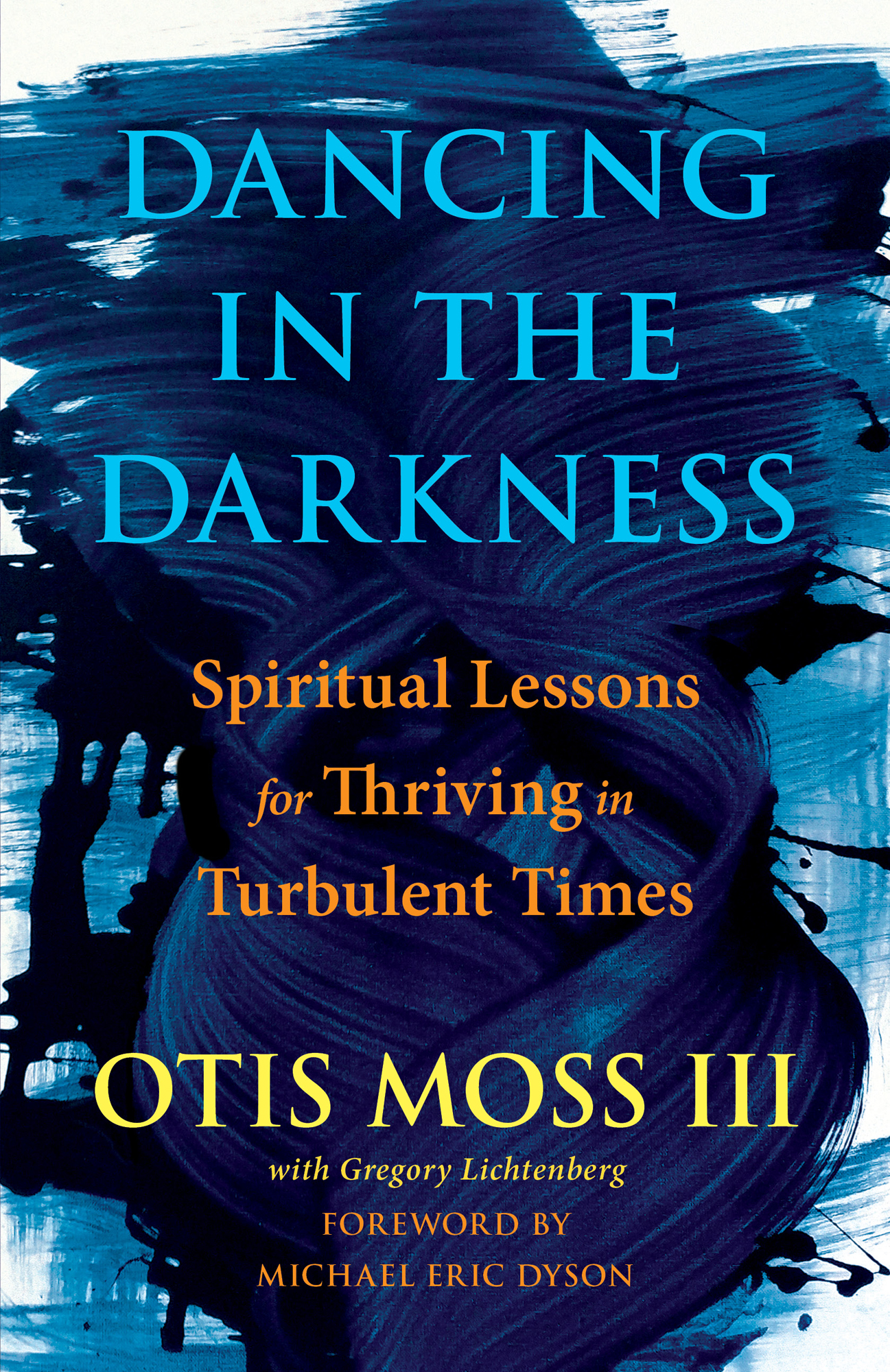Contents
Guide
Dancing in the Darkness
Spiritual Lessons for Thriving in Turbulent Times
Otis Moss, III
with Gregory Lichtenberg
Foreword by Michael Eric Dyson
To my daughter, Makayla,
who taught her father how to Dance in the Dark
Foreword Black Coffee Spirituality BY MICHAEL ERIC DYSON
I have been a Black Baptist preacher for forty-three years now. As part of our tradition, an old saw governs our oral practice. The first time we repeat something great we have heard, we give full attribution, saying, for example, As Pastor Otis Moss III says. The second time we repeat it, the authorship becomes a bit foggy and obscure, and thus we say, As someone says. By the third go-round, the fog has lifted, and authorship has shifted as we claim full ownership and gleefully declare, As I always say.
I want to tell a story that I am sure you have heard because it has circulated widely, so I will spare you the pretense of having authored it myself. Since I cannot determine who first told this tale, I can genuinely begin my recounting with, As someone says. One version of the story goes that a young lady was complaining to her mother about her troubles and wondering aloud how she would make it through a spell of misfortune.
Her mother led the young lady to the kitchen and filled three pots with water, placing carrots in the first, eggs in the second, and coffee beans in the third. After bringing each pot to a boil, she removed the contents and placed them in a bowl, explaining to her daughter that while they had been subject to the same adverse condition, each element reacted differently.
The carrots had been strong, hard, and unbending, yet emerged soft and weak. The eggs had been fragile, their liquid interior protected by a thin shell, and yet their insides were hardened by the heat. The consistency of the coffee beans remained the same, but instead of being altered by their surroundings, they changed the water in which they were boiled to produce coffee with a rich aroma.
Which are you? The mother asked her daughter to gauge how she would respond in the face of difficulty. It is a question we all must answer.
The answer Otis Moss III gives in the splendid book you hold in your hands is that Black folks have been a coffee bean people who practice a black coffee spirituality. We have throughout our history been thrust into various bodies of hostile waterinto the Atlantic during the slave trade, and, in the case of the young martyr Emmett Till, into Mississippis Tallahatchie River. And, each time, we have transformed waters of hatred and brutality into healing streams of moral and social redemption.
We have insisted that God has been troubling the watersstirring them up, setting up the conditions of healinginto which Black folks have been unjustly tossed. Black folks have consistently proved to be a coffee bean people who change the character of the cultures we inhabit, transforming a nation built on violence and bigotry into a land flowing with the wild aspiration to make the dream of justice a sturdy truth.
Like the coffee bean, Black folks have added flavor and fragrance to a society often bitterly opposed to Black intelligence and humanity. Black spiritual striving has pushed America closer to becoming a nation inspired to close the gap between its noble ideals and its too often sorry practices. Black people have spilled blood in the soil of American society, and from that soil has sprung a more vigorous imagination about the possibilities of democracy. In this book, Moss beautifully shares the contents of a robust and reflective black coffee spirituality that can once again save the soul of America with prophetic grief, sober redemption, catalytic forgiveness, baptized rage, edifying emancipation, sublime justice, and majestic hope.
Otis Moss III hails from black coffee spiritual royalty. His father, Otis Moss Jr., developed his oratorical skills by speaking out against injustice alongside Martin Luther King Jr. and became one of the greatest preachers in the history of American Christianity. Otis Moss III is a light coffeecolored splash of Black masculinitya Hollywood-handsome wordsmith whose sacred rhetoric drips with the imperatives of Black prophetic urgency. His parish is a classic black coffee congregation shaped by the provocative oratory of its previous shepherd, the Rev. Jeremiah Wright.
Moss is a magnificent fusion of radical Black theology and uplifting American moral philosophy. No matter how dark the night becomes, no matter how traumatic the times turn, Moss and the people who have loved and shaped him believe that we must never yield to cynicism or hopelessness. Moss is convinced that we must not be carrots that start tough but end soft, nor eggs that get hardened by terrifying experiences, but rather coffee beans that change the cultures and peoples we encounter.
Dancing in the Darkness is a brilliant and poetic meditation on how Black moral genius can transform America. It is a stirring plea for the nation to become a better version of its democratic self by embracing the principles and practices of black coffee spirituality. Black coffee boosts energy and is rich in antioxidants that combat cell damage and reduce the risk of many ailments. Black coffee is made from roasted coffee beans that are soaked in water that releases their flavor, color, caffeine, and nutrients. Black coffee is the mixture of water and coffee beans without the addition of any cream. And yet, when black coffee spirituality is served to white America, there is in the mixture a deeply flavorful possibility of national transformation that can stir visions, energize belief, revive hope, heal maladies, and change lives. The nation is fortunate to have this opportunity to drink Mosss delicious and invigorating brew.
Introduction
The first duty of society is justice.
ALEXANDER HAMILTON
See how elastic our stiff prejudices become when love comes to bend them.
HERMAN MELVILLE , Moby-Dick
Confront the dark parts of yourself, and work to banish them with illumination and forgiveness. Your willingness to wrestle with your demons will cause your angels to sing.
AUGUST WILSON
You have begun reading this book, but I do not know who you are. I do not know your family background, whether or not you pray, your gender, or how you vote. Is there anything we could agree on, any larger project that we share?
I believe, at least, that we share a feeling, a deep unease about this nation. If America were music, its chords would be clashing, its rhythm off. If it were a time, it would be midnight, a political midnight in which, more than any time since the Civil War, we are divided: community against community, neighbor against neighbor, citizen against citizen. Elections come and go, but still we struggle to speak across the divides. Has it ever been harder to get through Thanksgiving dinner without an argument?
In 2016, as that unease grew within me, I published an open letter in Sojourners magazine to my son, my brown-skinned teenage son, Elijah. Many readers found my letter controversial. It began:
Dear Elijah,
What shall I tell you?
Shall I tell you that your rights are protected, and racism is a scourge now banished from society?
Shall I tell you that in this country, you are entitled to act and live as any other teenage boy, to dance playfully with minor mischief, and to speak with a quick, immature tongue?


